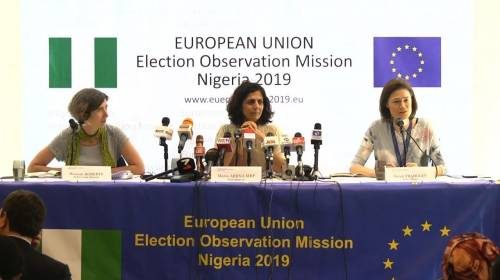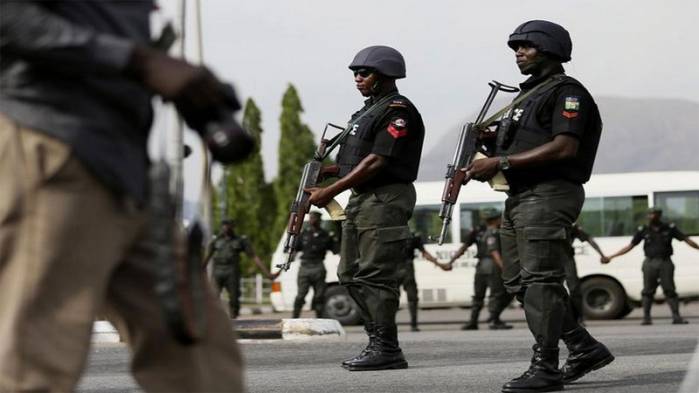The European Union Election Observation Mission (EU EOM) in its final report on the 2019 general elections blamed leading parties for not preventing acts of violence and intimidation by their supporters.
It recommended that the Independent Electoral Commission, INEC, must strengthen procedures for the collation of results to improve integrity and confidence in electoral outcomes.
The EU EOM Chief Observer, Maria Arena, who addressed a news conference in Abuja on Saturday, on the release of the final report of the 2019 General Elections stressed the need to urgently improve the electoral process in Nigeria.
She further noted the equally urgent need to address systemic failure in the elections.
Arena, who disclosed that the EU final report contained 30 recommendations to improve future electoral processes in Nigeria, said that the mission observed a relatively low level of voter participation, which confirmed the need for fundamental electoral reform.
She said: “Such reform needs political leadership that is dedicated to the rights of Nigerian citizens, and an inclusive process of national dialogue involving state institutions, parties, civil society and the media.
“This needs to be urgently undertaken to allow time for debate, legislative changes and implementation in advance of the next elections.”
She, however, observed that the elections were competitive and that parties were able to campaign while civil society enhanced accountability.
The EU Chief Observer said out of the 30 recommendations by the mission, priorities were given to seven.
According to her, the mission called for the establishment of requirement in law for full results transparency, with data made easily accessible to the public; the strengthening of lNEC’s organisational and operational capacity, as well as its internal communication and that the inter-agency body responsible for electoral security should work more transparently and inclusively, with regular consultations with political parties and civil society.
Furthermore, the mission recommended the introduction of a legal requirement for political parties to have a minimum representation of women among candidates and stressed the need for electoral tribunals to also cover pre-election cases in order to improve access to remedy and to avoid petitions being taken to different courts at the same time.











